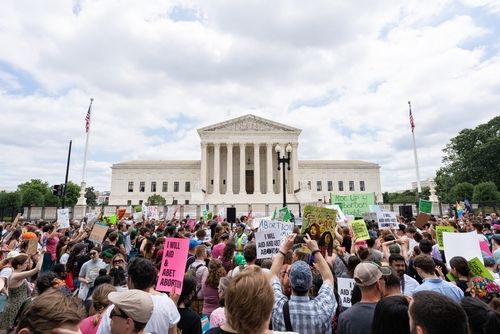 In the political landscape of the United States, Christian beliefs are a significant driving force in the anti-abortion movement. It is important to explore how these religious convictions intersect with political activism, influencing legislation and public policy to shape a crucial and controversial aspect of national discourse.
In the political landscape of the United States, Christian beliefs are a significant driving force in the anti-abortion movement. It is important to explore how these religious convictions intersect with political activism, influencing legislation and public policy to shape a crucial and controversial aspect of national discourse.
Historical Context
The anti-abortion movement, often termed the "pro-life" movement within political circles, has deep roots in Christian theological teachings, which hold that life begins at conception. This belief is based on various interpretations of biblical texts, which many Christians feel imply the sanctity and inherent value of all human life, including that of the unborn. Over the decades, these religious principles have galvanized activists and political leaders to adopt and promote anti-abortion policies.
Political Mobilization and the Christian Right
The mobilization of Christian groups in anti-abortion campaigns gained significant momentum in the late 20th century, especially with the rise of the Christian Right in the United States. Political figures and religious leaders began to forge stronger ties, with anti-abortion stances becoming a cornerstone of the Christian conservative agenda. The movement's growth was catalyzed further by the landmark 1973 Supreme Court decision in Roe v. Wade, which legalized abortion nationwide and became a rallying point for opposition.
Christian groups such as the National Association of Evangelicals and the Catholic Church have been at the forefront, advocating for the overturning of Roe v. Wade and supporting measures that restrict abortion access. Their influence is evident in the drafting of legislation at both state and federal levels, aimed at imposing strict regulations on abortion providers and limiting the circumstances under which abortions may be legally performed.
Legislation and Supreme Court Battles
Christian beliefs have not only shaped legislative efforts but have also been central to judicial battles over abortion. For example, many proponents of anti-abortion laws argue from a standpoint of Christian moral ethics, framing their advocacy as a defense of life based on divine principles. This was clearly reflected in the various amicus briefs filed by religious groups in major Supreme Court cases.
The culmination of these efforts was seen in recent years with significant changes in the U.S. Supreme Court’s composition, leading to decisions that reflect more conservative and Christian-oriented values regarding abortion. This shift has profound implications for abortion rights, with potential for more states to pass restrictive laws that had previously been deemed unconstitutional.
Advocacy and Public Policy
Beyond legislatures and courts, Christian groups actively work to sway public opinion on abortion through education, outreach, and media campaigns. Organizations like Focus on the Family and the Family Research Council produce materials and host events that frame anti-abortion stances in religious and ethical terms. They also engage with politicians to promote policies that align with their beliefs, demonstrating the powerful intersection of faith and policy.
These organizations argue that their advocacy protects the most vulnerable and upholds Christian teachings on the value of life. However, this involvement in political advocacy also raises questions about the separation of church and state, especially when religious justifications are used to shape laws that affect a diverse and pluralistic society.
International Influence
The influence of Christian beliefs on anti-abortion movements is not confined to the United States. In many parts of the world, especially in predominantly Catholic countries or regions with strong evangelical movements, similar dynamics play out. In Latin America, for example, the Catholic Church has played a significant role in keeping strict anti-abortion laws on the books, despite growing public debates and movements toward more liberal policies.
Challenges and Controversies
The intertwining of Christian beliefs with anti-abortion politics is not without controversy. Critics argue that political activism based on religious beliefs should not infringe on the rights of individuals who may not share the same convictions, highlighting the need for policies that respect religious diversity and personal autonomy. Moreover, the debate often extends to discussions about women's rights, healthcare access, and the role of government in personal decisions.
As the debate over abortion continues to be a polarizing issue in political discourse, the role of Christian beliefs remains central. The impact of these religious convictions on public policy underscores the enduring influence of faith in political activism. While proponents see this as a moral imperative, the broader implications for society and governance continue to provoke intense debate and discussion, reflecting the complex relationship between religion, politics, and individual rights.